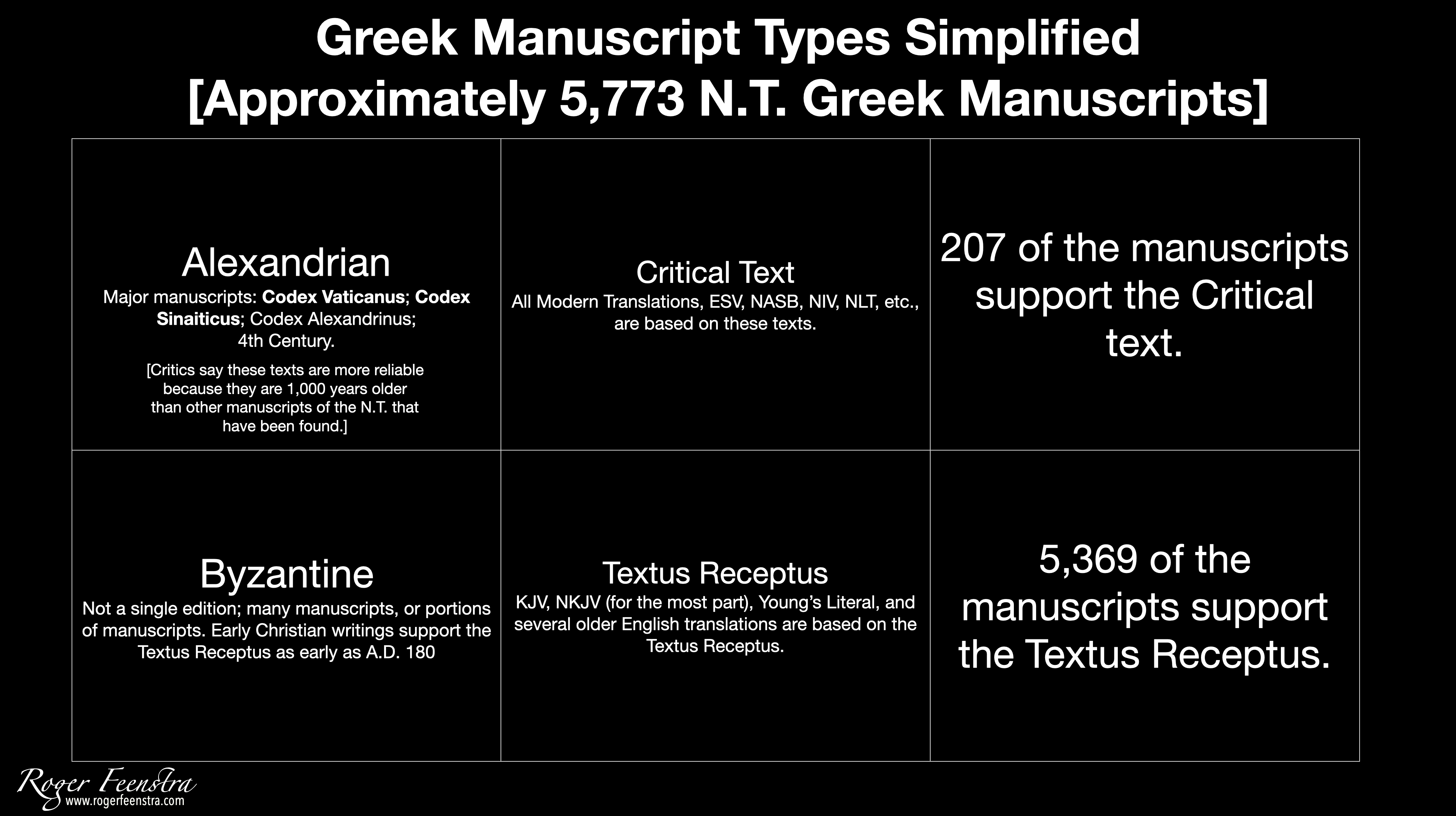
Faithlife
There are two primary Greek manuscripts from which English Bibles are translated; The Alexandrian Critical Text, and the Byzantine Textus Receptus (see my chart below).
In many places they differ quite substantially. For example in John 7 the brothers of Jesus try to compel Him to go from Galilee up to the feast of tabernacles in Jerusalem. The translation from the Critical Text, makes Jesus out to be a liar. Did Jesus ever lie?
Compare John 7:8 in the ESV (Critical Text) to the King James (Textus Receptus):
"You go up to the feast. I am not going up to this feast, for my time has not yet come." (Critical Text: ESV, also NASB, NLT).
"Go ye up unto this feast: I go not up yet unto this feast; for my time has not yet full come." (Textus Receptus: KJV, NKJV, YLT)
In the first example (ESV, NASB, NLT), Jesus clearly tells his brothers "I am not going!" But in verse 10, he goes.
In the second (KJV, NKJV, YLT) Jesus tells his brothers, I am not "yet" going to the feast.
Both of these translations cannot be the Word of God, for they clearly differ. I tend to lean toward a translation where Jesus is not lying (Textus Receptus/KJV).
faithlife.com